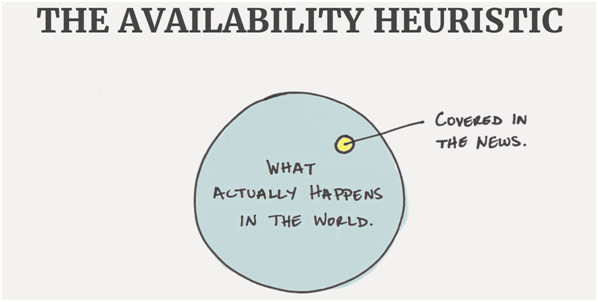
The availability heuristic
Before we consider the availability heuristic within medicine, understanding how the availability heuristic plays out in everyday contexts proves helpful. Imagine that you are spending your Friday night studying in your dorm room, studying for a big midterm you have that week. You take a break and peruse Instagram, seeing countless examples of your classmates going out and having a great time, causing you to feel horrible about yourself and how you are spending your time at college. Because these pictures of people going out are most available to you (as nobody posts about staying home to study), you are likely to have a warped perception of how everyone is spending their Friday night. Similarly, you likely believe that you are more likely to be in a plane crash than in a car crash because plane crashes make huge news (e.g., Malaysian Airlines Flight 370 and 9/11) even though the chance of dying in a plane crash is 862 times less likely than dying in a car crash. The chance that a plane crashes is dependent on a huge number of factors, such as wind speed, the model of the plane, the pilot, etc., all of which are difficult to estimate or even consider for that matter. What we do have readily available, however, is the anecdotal experiences and stories we have heard, which is why we overestimate the chance of plane crashes. In fact, the availability heuristic explains why politicians often use vivid anecdotes rather than facts and figures to make their points: they are banking on the fact that personal stories affect you more strongly than raw data.
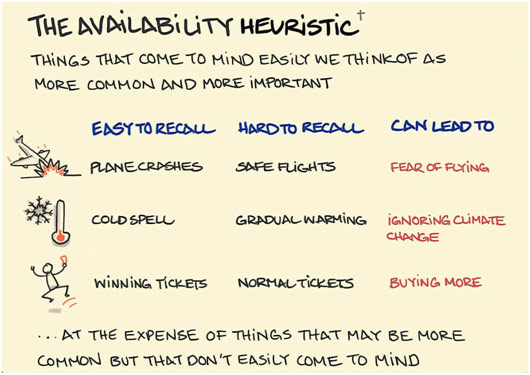
Availability Heuristic Examples
Given this context of the availability heuristic in everyday circumstances, we can now return to the availability heuristic in medicine, specifically examining how it affects patient decision-making. Vaccines are one such prominent example as no vaccine is perfect: every vaccine carries some small risk of adverse events. Certainly, whenever a vaccine is introduced for a disease, the number of new cases for that disease will fall; however, as more and more people are vaccinated, the number of adverse events will certainly rise. If a vaccine causes an adverse effect in 0.1% of the population and you vaccinate one million people, 1000 people will have an adverse effect to that vaccination. These adverse events become horror stories that parents recount to one another, ultimately making them, and those they tell these stories to, less likely to get their children vaccinated in the future. These rare anecdotes become more available to parents than the horrors of the disease itself, which the vaccine has mostly eradicated and thus made less available. Statistics and data showing the vaccine is effective and safe are lost upon people because the availability heuristic makes them give greater weight and value to the anecdotes they hear.
That being said, the availability heuristic can also be used for more positive ends, specifically in the form of science communication and public health messaging. When discussing chronic, preventable conditions with the public, physicians should certainly root their findings and messaging in the data while also taking a page out of the politician handbook and using personal anecdotes that resonate more strongly with the audience. For example, when discussing lung cancer and the dangers of smoking, while the fact that 90% of all lung cancer cases are caused by cigarette smoking is relevant, giving an anecdote of a father who smoked a pack a day for several years, tragically got diagnosed with Stage IV lung cancer, and died shortly thereafter may be more impactful as public health messaging.
Availability heuristic clearly plays out among patients, but physicians are not immune from this mental shortcut either. The art of the diagnosis is a difficult task because physicians must discern from countless possible conditions the patient may have and come to exactly one diagnosis, the correct one. In this process, it is quite easy to fall asunder by various cognitive biases, such as the availability heuristic. Imagine a scenario where a patient presents with left leg pain and, upon examination, there is significant reddening and swelling of the leg. Cellulitis is one of the most common bacterial skin infections and lines up with all the symptoms you see, so that is the diagnosis given. However, perhaps this patient instead had necrotizing fasciitis (flesh-eating disease), which is much more dangerous than cellulitis and leads the patient to lose her leg because of your error. While this mistake deserves attention in its own right, the anecdote you now have of your failing to diagnose necrotizing fasciitis may lead you to needlessly harp on this diagnosis for future patients even when all the evidence points away from it. You may subject the patient through unnecessary and potentially detrimental medical care because of the outsized importance you give to necrotizing fasciitis. In fact, in a similar example published in one study, doctors who had recently cared for a patient with bacteraemia were more likely to overestimate that their other patients had bacteraemia. If the story of necrotizing fasciitis or bacteraemia is more available, it can detrimentally impact physician’s diagnosis-making as they unjustifiably give weightage to the available diagnosis rather than the correct one.
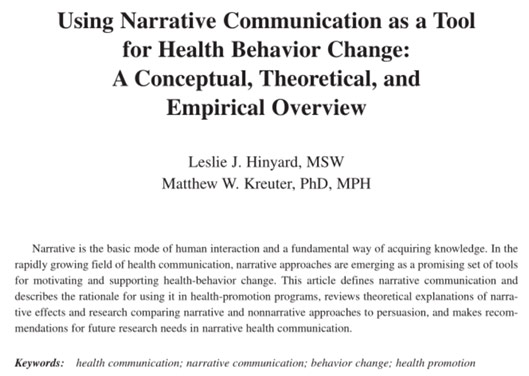
Paper on Narrative Communication for Changing Health Behaviors
Heuristics, in general, have been evolutionarily ingrained in us because they represent mental shortcuts that are generally helpful for us to make quick and relatively accurate decisions about complex problems. While buying lottery tickets because you read about lottery winners in the news is mostly innocuous, availability heuristic can have significant deleterious consequences in healthcare on both the patient and physician side. Strategies, such as considering if data is relevant than just salient, playing devil’s advocate with yourself, and looking at the issue quantitatively with base rates, can all help to overcome availability heuristic. Ultimately, we all have a responsibility to actively combat cognitive biases and shortcuts in our decision-making because our failure to do so in healthcare in particular costs lives.
REFERENCES
https://jamanetwork.com/journals/jamapediatrics/article-abstract/2647983
https://medium.com/betterism/the-availability-heuristic-is-ruining-the-country-74419403893b
https://pubmed.ncbi.nlm.nih.gov/15802723/
https://kenthendricks.com/availability-heuristic/




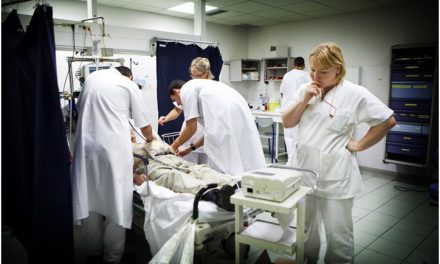

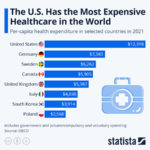


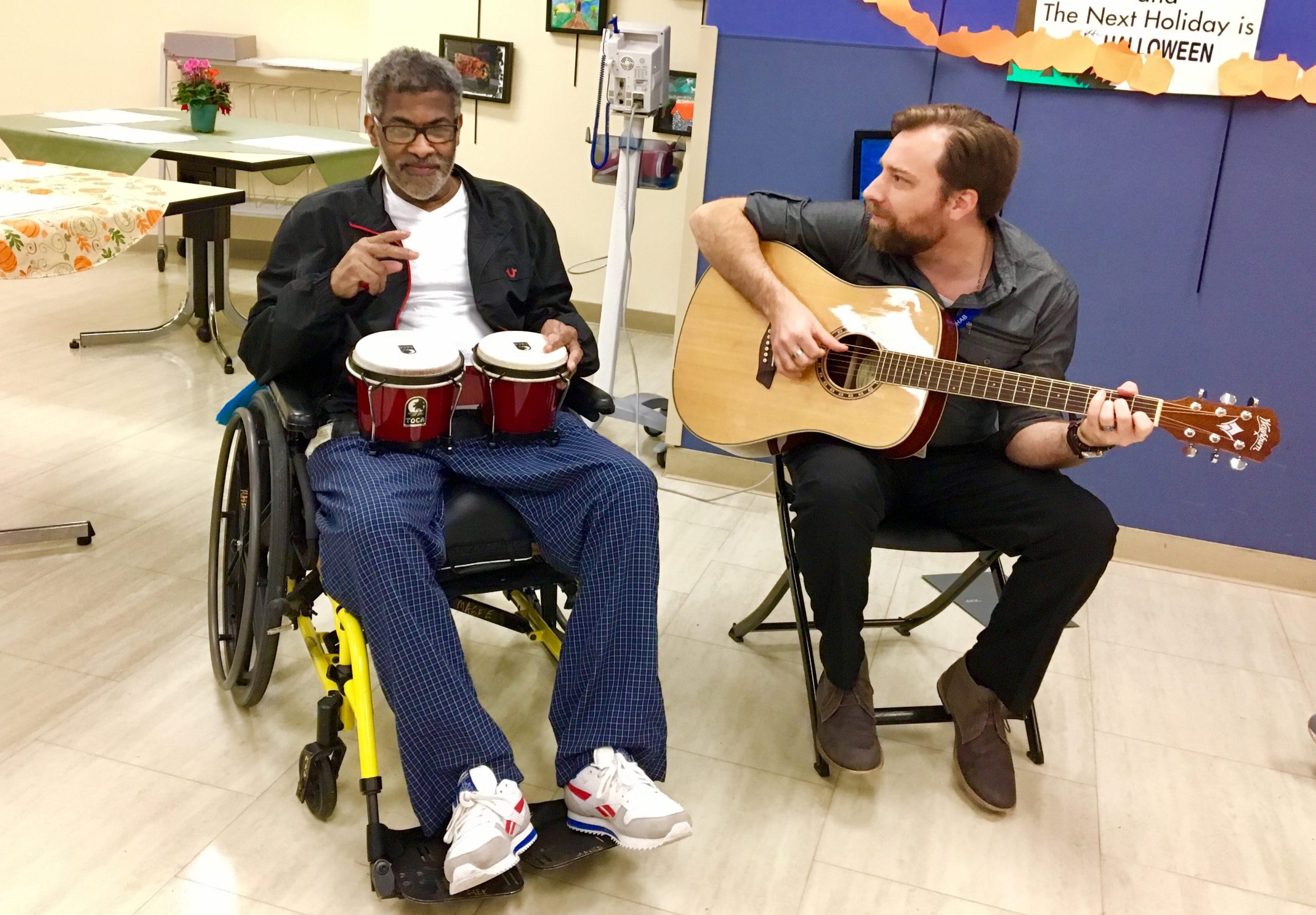
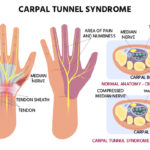
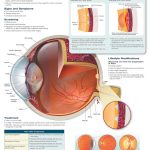



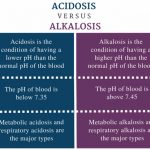
Nice post. I was checking continuously this blog and I’m impressed! Extremely useful info particularly the last part 🙂 I care for such information a lot. I was looking for this certain information for a long time. Thank you and best of luck.
Wohh precisely what I was looking for, thanks for putting up. Marney Ford Rozelle